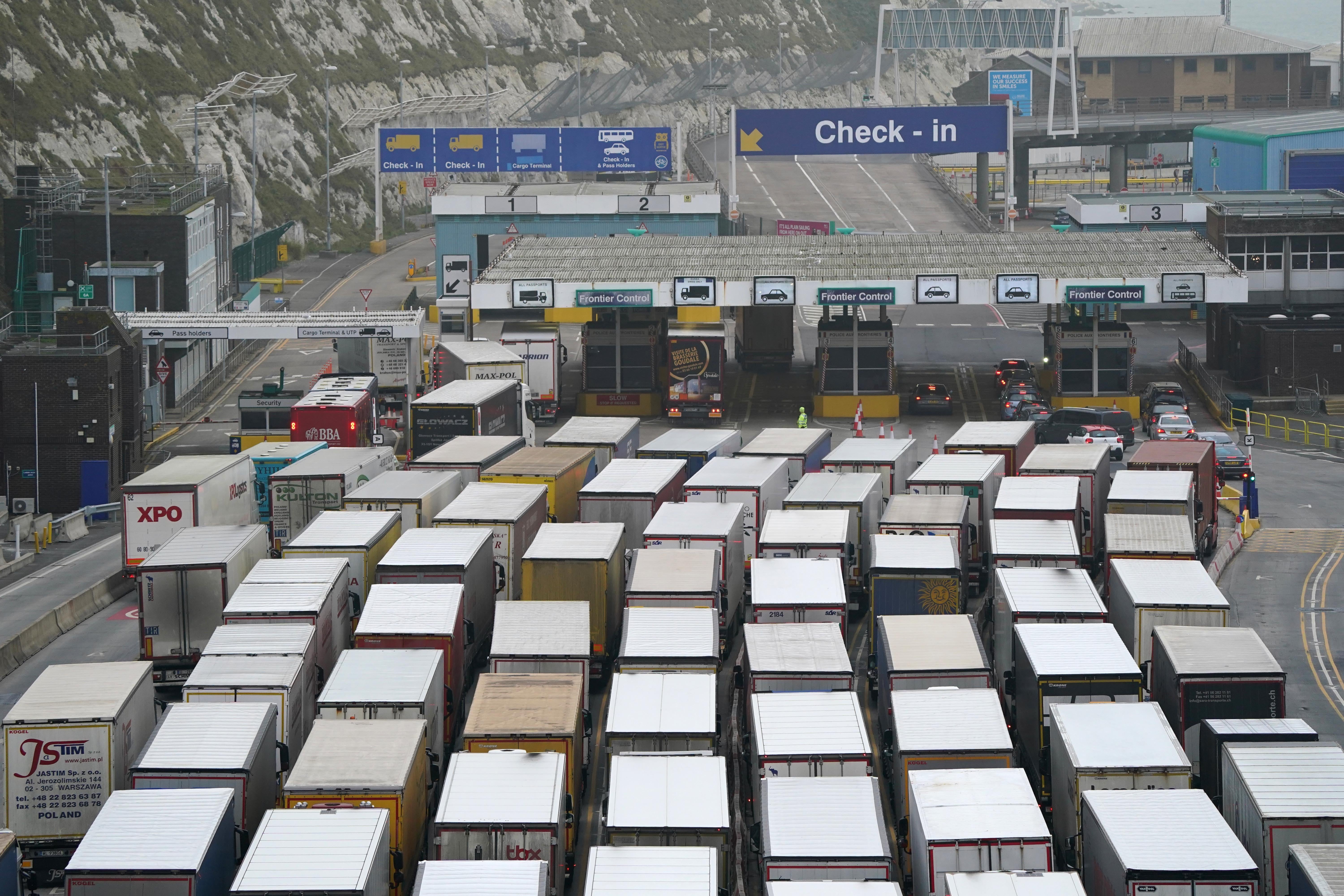New post-Brexit customs rules explained
On January 1 a new series of rules come into place for goods shipped to the UK as part of the post-Brexit trade agreement.

Your support helps us to tell the story
From reproductive rights to climate change to Big Tech, The Independent is on the ground when the story is developing. Whether it's investigating the financials of Elon Musk's pro-Trump PAC or producing our latest documentary, 'The A Word', which shines a light on the American women fighting for reproductive rights, we know how important it is to parse out the facts from the messaging.
At such a critical moment in US history, we need reporters on the ground. Your donation allows us to keep sending journalists to speak to both sides of the story.
The Independent is trusted by Americans across the entire political spectrum. And unlike many other quality news outlets, we choose not to lock Americans out of our reporting and analysis with paywalls. We believe quality journalism should be available to everyone, paid for by those who can afford it.
Your support makes all the difference.January 1 sees a new set of stricter post-Brexit customs rules come into place for companies shipping goods to the EU. The PA news agency takes a look at the rule changes.
What were the previous customs rules for goods coming to Britain from the EU?
Until today, HM Revenues and Customs allowed for a 175-day delay on companies submitting customs declarations. But from January 1 2022, the ability to delay submissions will end.
Rules on country of origin documents will also get marginally stricter, with declarations needing to be made when goods arrive here. Those rules will be ramped up later in the year.
What does that mean for EU products coming to Britain?
It means all checks and forms must be filled and filed at least four hours before goods can arrive here, or they risk being turned back at the border.
What checks need to take place?
The new rules, negotiated as part of the Brexit agreement and phased in gradually, state that animal and plant-based products must have statements of origin certificates.
However, these do not have to be submitted for extensive checks, as is currently the case for goods arriving in the EU and Northern Ireland from Britain.
From January 1, drivers must declare their goods and point of origin but any checks are expected to be minimal until the summer, when all that changes.
What happens in the summer?
From July 2022, goods will undergo far stricter checks, similar to those already taking place on food being shipped from Britain to the EU.
An electronic document check before the product starts its journey, an identification check on the seal applied to the consignment prior to departure, and a third physical check when it arrives must all take place, with country of origin certificates, including from suppliers, if required.
What products will need to have three checks?
Animal products, including meat, milk, eggs and honey, must include a “Products of Animal Origin” certificate. Similarly, fruits, vegetables and flowers – and anything plant-based – must also have a certificate of origin.
Checks will be carried out at designated Border Control Posts (BCPs) or Control Points, potentially leading to far longer delays.
Have these checks been happening already?
It has for goods arriving in the EU and Northern Ireland from Britain, which has caused all sorts of problems and delays.
Most noticeably, M&S has complained during the past year that it has led to the retailer hiring an army of vets to check products going between Britain and the island of Ireland, due to Northern Ireland remaining part of the customs union under the Northern Ireland protocol.
Any more checks due to be introduced?
From September 1 2022, the same certification and physical checks are due to be introduced also on dairy products imported from the EU.
Then on November 1 2022, certification and physical checks are to be introduced for all remaining regulated products of animal origin, including fish.
Anything else?
Yes. Until now, HMRC has taken a relatively light touch approach to enforcement of incorrect documentation, issuing few penalties. That will change from January 1.
What about the island of Ireland?
Northern Ireland and the Republic of Ireland are exempt from the changes whilst politicians continue negotiating the Northern Ireland protocol. Goods coming to Britain from the island of Ireland will continue under the same rules as before – primarily the 175-day delay will remain. The checks on goods going from Britain to the island will remain as they are.
What impact will this have to consumers?
The British Frozen Food Federation (BFFF) has warned that delays could occur, leading to shortages in stores. The trade body is particularly concerned that, whilst UK businesses seem well prepared, EU ones are less so.